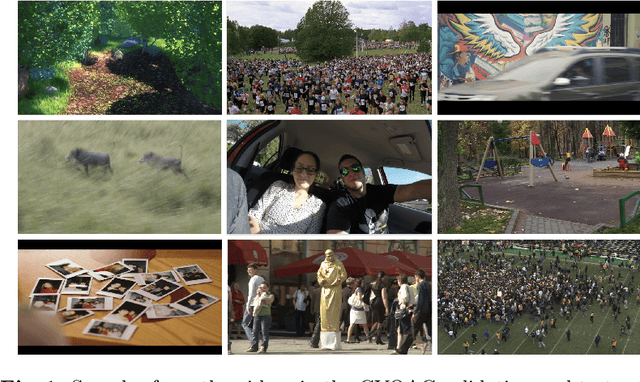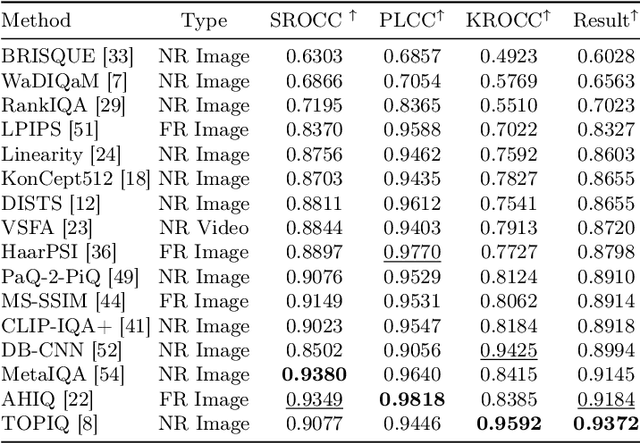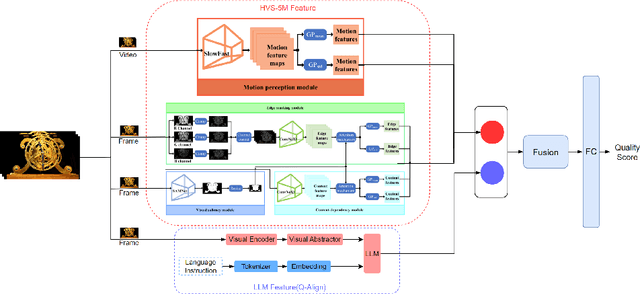Aleksandr Gushchin
Exploring adversarial robustness of JPEG AI: methodology, comparison and new methods
Nov 18, 2024



Abstract:Adversarial robustness of neural networks is an increasingly important area of research, combining studies on computer vision models, large language models (LLMs), and others. With the release of JPEG AI - the first standard for end-to-end neural image compression (NIC) methods - the question of its robustness has become critically significant. JPEG AI is among the first international, real-world applications of neural-network-based models to be embedded in consumer devices. However, research on NIC robustness has been limited to open-source codecs and a narrow range of attacks. This paper proposes a new methodology for measuring NIC robustness to adversarial attacks. We present the first large-scale evaluation of JPEG AI's robustness, comparing it with other NIC models. Our evaluation results and code are publicly available online (link is hidden for a blind review).
AIM 2024 Challenge on Compressed Video Quality Assessment: Methods and Results
Aug 21, 2024



Abstract:Video quality assessment (VQA) is a crucial task in the development of video compression standards, as it directly impacts the viewer experience. This paper presents the results of the Compressed Video Quality Assessment challenge, held in conjunction with the Advances in Image Manipulation (AIM) workshop at ECCV 2024. The challenge aimed to evaluate the performance of VQA methods on a diverse dataset of 459 videos, encoded with 14 codecs of various compression standards (AVC/H.264, HEVC/H.265, AV1, and VVC/H.266) and containing a comprehensive collection of compression artifacts. To measure the methods performance, we employed traditional correlation coefficients between their predictions and subjective scores, which were collected via large-scale crowdsourced pairwise human comparisons. For training purposes, participants were provided with the Compressed Video Quality Assessment Dataset (CVQAD), a previously developed dataset of 1022 videos. Up to 30 participating teams registered for the challenge, while we report the results of 6 teams, which submitted valid final solutions and code for reproducing the results. Moreover, we calculated and present the performance of state-of-the-art VQA methods on the developed dataset, providing a comprehensive benchmark for future research. The dataset, results, and online leaderboard are publicly available at https://challenges.videoprocessing.ai/challenges/compressed-video-quality-assessment.html.
Adversarial purification for no-reference image-quality metrics: applicability study and new methods
Apr 10, 2024



Abstract:Recently, the area of adversarial attacks on image quality metrics has begun to be explored, whereas the area of defences remains under-researched. In this study, we aim to cover that case and check the transferability of adversarial purification defences from image classifiers to IQA methods. In this paper, we apply several widespread attacks on IQA models and examine the success of the defences against them. The purification methodologies covered different preprocessing techniques, including geometrical transformations, compression, denoising, and modern neural network-based methods. Also, we address the challenge of assessing the efficacy of a defensive methodology by proposing ways to estimate output visual quality and the success of neutralizing attacks. Defences were tested against attack on three IQA metrics -- Linearity, MetaIQA and SPAQ. The code for attacks and defences is available at: (link is hidden for a blind review).
Comparing the robustness of modern no-reference image- and video-quality metrics to adversarial attacks
Oct 10, 2023Abstract:Nowadays neural-network-based image- and video-quality metrics show better performance compared to traditional methods. However, they also became more vulnerable to adversarial attacks that increase metrics' scores without improving visual quality. The existing benchmarks of quality metrics compare their performance in terms of correlation with subjective quality and calculation time. However, the adversarial robustness of image-quality metrics is also an area worth researching. In this paper, we analyse modern metrics' robustness to different adversarial attacks. We adopted adversarial attacks from computer vision tasks and compared attacks' efficiency against 15 no-reference image/video-quality metrics. Some metrics showed high resistance to adversarial attacks which makes their usage in benchmarks safer than vulnerable metrics. The benchmark accepts new metrics submissions for researchers who want to make their metrics more robust to attacks or to find such metrics for their needs. Try our benchmark using pip install robustness-benchmark.
 Add to Chrome
Add to Chrome Add to Firefox
Add to Firefox Add to Edge
Add to Edge